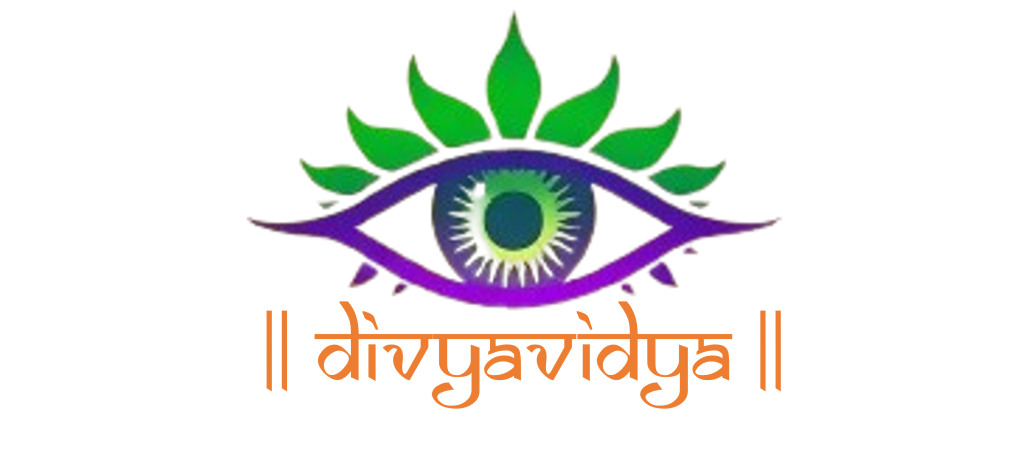
Introduction to Dark Psychology
Dark psychology is a field focused on understanding the shadowy side of human nature, where manipulation, control, and influence are often used to achieve personal goals at the expense of others. Through a range of tactics, dark psychology can play on emotions, influence thoughts, and sometimes create a false sense of reality.
People often overlook these tactics, yet being unaware of them can leave you vulnerable to manipulation. Learning about these tactics is not about using them but understanding how they can impact you. With increased mental awareness, you gain the knowledge needed to recognize, respond to, and protect yourself from these subtle, and sometimes overt, manipulative techniques.
Key Manipulation Tactics in Dark Psychology
Dark psychology uses various techniques to gain control over others, often subtly and over time. Recognizing these common tactics can prevent you from falling victim to manipulation.
Gaslighting: The Art of Undermining Reality
Gaslighting involves manipulating someone into doubting their own perception of reality. This tactic often starts small, with the manipulator dismissing or questioning minor details. Over time, it escalates, making the victim feel unsure of their own experiences and memories.
A person being gaslit may start to doubt everything they know, feeling as though they are “losing their mind.” Manipulators use gaslighting to create dependency, ultimately positioning themselves as the only “reliable” source of truth. This tactic is commonly used in toxic relationships, workplaces, and even social situations, where control is the ultimate goal.
Love Bombing: Creating False Emotional Bonds
Love bombing involves overwhelming someone with excessive attention, admiration, or affection. Initially, it feels like genuine love, but the intention is to establish quick emotional dependency. Once the target feels emotionally tied to the manipulator, the affection abruptly reduces, leaving them feeling confused and vulnerable.
This tactic is especially common in romantic relationships, where an abuser might alternate between love bombing and neglect to maintain control. Love bombing leads the victim to chase the initial affection, making them more susceptible to further manipulation and control tactics.
Emotional Blackmail: Using Guilt to Control
Emotional blackmail relies on guilt, fear, and obligation to control someone’s actions. The manipulator may threaten consequences or portray themselves as a victim to elicit feelings of guilt. This creates a sense of responsibility in the victim, who may go along with the manipulator’s demands to avoid feelings of guilt or fear.
Emotional blackmail often thrives in family, friend, or close partner dynamics, where emotional bonds can be used to keep someone in line with the manipulator’s desires.
Why Mental Awareness is Essential
Being aware of dark psychology tactics is crucial for maintaining control over your thoughts, actions, and emotions. When you are aware of manipulation tactics, you are less likely to fall into their trap. Increased mental awareness enables you to set boundaries, question motives, and recognize when someone might be attempting to control you.
Mental awareness is about knowing your own mind, recognizing your own feelings, and understanding that some behaviors are deliberate attempts to manipulate. It’s about empowering yourself to trust your own perspective and avoid the influence of those who might not have your best interests at heart.
How to Protect Yourself from Manipulation
The best defense against dark psychology tactics is to cultivate strong self-awareness and set clear boundaries. Here are a few strategies to protect yourself:
- Recognize red flags: Know the signs of manipulation, whether it’s gaslighting, love bombing, or emotional blackmail.
- Trust your instincts: Often, your gut feeling can alert you to a manipulative person.
- Establish boundaries: Communicate and enforce limits in all relationships.
- Seek support: Sometimes, sharing your experiences with trusted individuals can provide clarity and validation.
- Educate yourself: The more you know about dark psychology, the easier it is to avoid its traps.
Protecting yourself is not about pushing others away but about ensuring that you are not under someone else’s control. Setting boundaries allows for healthy relationships where respect is mutual.
Recognizing Patterns in Manipulation
Understanding dark psychology and manipulation tactics isn’t only about identifying individual tactics—it’s also about recognizing the broader patterns manipulators often use. Manipulators frequently rely on certain sequences or cycles to deepen their influence. For example, they might employ “push-pull” strategies, where they alternate between affectionate gestures and dismissive behaviors, creating an emotional dependency. Recognizing these patterns helps you stay alert to the gradual progression of manipulation.
Awareness of such patterns can help you take a step back and evaluate the behavior objectively rather than getting swept up emotionally. This skill requires practice, but the more you observe and identify patterns in interactions, the better you’ll become at avoiding unhealthy relationships and fostering ones built on respect and honesty.
Empowering Yourself Through Self-Reflection

Another powerful defense against manipulation is self-reflection. Regularly reflecting on your feelings, boundaries, and expectations helps you understand your motivations and reactions. Self-reflection allows you to notice if someone’s behavior is consistently making you feel confused, guilty, or pressured, which can indicate manipulation.
Set aside time each week to ask yourself questions like: How do I feel in this relationship? Are my needs and boundaries respected? Answering these questions honestly provides insights that can alert you to any red flags and guide you in making decisions that protect your mental and emotional health.
Building a Support System
A support system of trusted friends, family, or professionals is invaluable in combating manipulation. Having people you trust who can offer a different perspective can help you gain clarity, especially when you feel uncertain about someone’s intentions. Those close to you can provide an objective viewpoint, reminding you of your worth and supporting you in maintaining boundaries.
In some cases, talking to a mental health professional can be incredibly beneficial. Therapy can equip you with tools to recognize manipulative tactics, assert yourself, and strengthen your emotional resilience. Having a network of people who understand and value you can make all the difference in preventing and recovering from manipulative relationships.
Final Thoughts
Understanding dark psychology and recognizing manipulation tactics are essential skills in today’s world. Manipulators often operate subtly, using tactics that play on natural human emotions like empathy and loyalty. By learning about these tactics, practicing self-reflection, and building a strong support system, you empower yourself to maintain control over your thoughts, feelings, and decisions.
The knowledge of dark psychology isn’t about approaching others with suspicion but about arming yourself with the awareness needed to recognize when a situation may not be as it seems. Ultimately, awareness and self-respect are your greatest allies, helping you build healthy, genuine relationships while safeguarding your mental and emotional well-being. Remember, your mind and heart are your own; no one should have the power to manipulate or control them without your awareness and consent.
Learning Assertive Communication
A key part of protecting yourself from manipulation is developing assertive communication skills. Assertiveness is the ability to express your needs, opinions, and boundaries clearly and respectfully. When you communicate assertively, you make it harder for others to twist your words or take advantage of your good nature.
Assertive communication is different from passive or aggressive communication. Being passive may lead others to assume that they can easily manipulate you, while being aggressive can escalate conflicts unnecessarily. Assertiveness, however, allows you to stand your ground without hostility. It involves using “I” statements, such as “I feel uncomfortable when…” or “I need…” rather than blaming or accusing. Practicing assertiveness is empowering, as it reinforces your boundaries and respects both your needs and those of others.
Recognizing Manipulation in Various Settings
Dark psychology tactics aren’t limited to personal relationships; they can show up in the workplace, friendships, and even among family members. In the workplace, for example, manipulation may appear as subtle gaslighting, where a colleague denies or undermines your contributions. Another common tactic is “divide and conquer,” where a manipulator tries to pit colleagues against each other to maintain control.
Being aware of these possibilities allows you to observe patterns without rushing to judgment. In friendships, manipulation can manifest in the form of emotional blackmail, where a friend may use guilt to get their way. Similarly, within family dynamics, manipulation can occur through constant criticism or attempts to control decision-making. By recognizing these behaviors across various relationships, you can address issues constructively and safeguard your emotional well-being.
Practicing Mindfulness to Build Resilience
Mindfulness is another powerful tool in combatting manipulation. By practicing mindfulness, you train yourself to stay present and focused, which helps you respond thoughtfully rather than react impulsively. Manipulative tactics often aim to trigger emotional responses, making you feel pressured to act without fully thinking things through.
Through mindfulness exercises—like deep breathing, meditation, or even simple grounding techniques—you can maintain a calm mindset, allowing you to assess situations objectively. When you’re mindful, you’re less likely to be swept away by emotions or influenced by others’ agendas. Instead, you can take a step back, recognize how you’re feeling, and respond in a way that aligns with your values and boundaries.
Setting Healthy Boundaries in Relationships
Healthy boundaries are essential for preventing manipulation. Boundaries are the limits you set regarding what you will accept or tolerate in a relationship. They protect your mental and emotional well-being by defining acceptable behavior and preventing others from infringing on your rights.
Establishing boundaries might involve clearly stating that you won’t engage in certain conversations, responding to emotional manipulation with a calm “no,” or even choosing to walk away from toxic situations. It’s important to remember that boundaries are not about pushing people away—they’re about creating space for respect and mutual care. When others understand your boundaries, they’re more likely to respect you, and manipulators are less likely to find a foothold.
Setting boundaries takes practice, especially if you’ve been accustomed to prioritizing others’ needs over your own. Yet, the more you enforce them, the stronger your sense of self becomes. Boundaries give you the freedom to engage in relationships on your terms, based on respect, understanding, and reciprocity.
Continuing Your Journey of Awareness
Protecting yourself from manipulation is an ongoing process that involves self-awareness, self-respect, and continuous learning. While dark psychology may seem daunting, the truth is that the more you learn about it, the less power it holds over you. This journey isn’t about becoming suspicious of others—it’s about understanding human behavior and becoming a strong advocate for your own mental health.
As you become more attuned to the tactics that manipulators use, you’ll also become more confident in trusting yourself. Personal growth in this area can even positively impact others around you. By modeling healthy boundaries, assertive communication, and mental resilience, you empower others to do the same.
Remember, your mind is your sanctuary, and maintaining that sense of security is within your control. Embracing awareness of dark psychology isn’t just about defense—it’s about cultivating a life filled with authenticity, trust, and self-respect. With these tools, you can navigate life’s complexities with clarity, safeguarding your well-being while fostering meaningful, respectful connections.
Conclusion
Dark psychology tactics can be subtle, but with awareness and understanding, you can protect yourself from falling prey to manipulation. Recognizing these tactics is the first step toward protecting yourself, allowing you to stay true to your perspective and well-being. Empowering yourself with knowledge of dark psychology ensures that you maintain autonomy, healthy boundaries, and strong mental resilience in any relationship or interaction.




